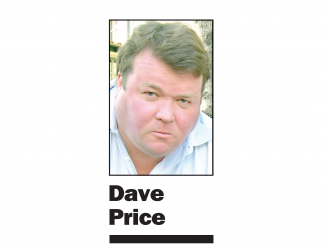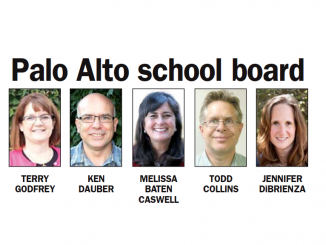
BY SARA TABIN
Daily Post Staff Writer
Schools in Santa Clara County will be closed for the rest of the academic year because of the COVID-19 outbreak. In Palo Alto, students will finish their classes online without letter grades, a shift that some kids say will prevent them from showing colleges that they can improve their academic standing from previous semesters.
Palo Alto students have had the option of doing some online work for the past two weeks. They will be on spring break next week. Required online classes will begin on April 13, but instead of letter grades students will get pass/fail grades. The pass/fail system is supposed to level the playing field for students who don’t have access to WiFi or tutoring now that schools are closed.
Some students who spoke to the Post said the new grading system will be bad for students who are trying to show colleges an improvement in grades.
Max Goetz, a senior at Gunn High School, said the credit/no credit system is fine for him because he has already been accepted to college.
He said he thinks the system could hurt juniors who had mediocre grades in past semesters and needed a chance to show an upwards trajectory. “For those people who wanted to show an upward trend in grades, I think it’s a really unfortunate situation,” he said.
Goetz said online learning has been fine for some classes like psychology that rely more on memorization than discussion. He said it has been a challenge in classes like English that require bouncing ideas off of classmates, but said his English class has made a group chat for that purpose.
Gunn junior Henry Poole said in an email that he is “a little disappointed” that the district switched to pass/fail because students won’t get to see their effort reflected in their grades. He said he doesn’t think the district necessarily made the wrong choice and said he thinks Superintendent Don Austin has been empathetic about students’ concerns.
“The feeling that I am most struck by is gratitude for the incredible response the Gunn community is leading,” he said. “Staff are working so hard to make sure we’re able to keep learning. Admin makes sure to reach out to students and communicate with us about how we get through these tough times. And students are coming together to support each other.”
This semester was her opportunity
Arohi Bhattacharya, a sophomore at Palo Alto High School, said she got a few B’s last semester and had talked to her teachers about how to improve this semester.
“Second semester was a chance for me to show what I could have done,” she said.
She said some of her friends are disappointed they can’t show their progress in classes, while others are happy that work feels optional.
Bhattacharya said she has been doing the optional work for the past two weeks because she thinks learning is fun.
Some colleges have announced changes in their admissions because of COVID-19.
UCs drop ACT, SAT requirements
The University of California said yesterday that high school juniors don’t have to take the SAT, ACT or have letter grades in required classes to apply to UC schools next year. Harvard University said it realizes many students will have pass/fail grades and they won’t be penalized because of it.
Palo Alto school board members said at Tuesday night’s meeting that they are worried some students will have trouble accessing online lessons because their home doesn’t have enough bandwidth.
The meeting was held via video chat over Zoom. Four of the trustees participated from home. Trustee Shounak Dharap was bouncing his baby on his knee during the meeting. Trustee Todd Collins participated from the board room but was more than six feet away from Superintendent Austin.
Bandwidth concerns
Trustee Ken Dauber said he is worried that students from the least well-off families will fall further behind, and that will create problems for their future learning. Dauber said he wants to invest money in helping kids get good internet access.
Trustee Melissa Baten Caswell said the internet is an issue for rich kids too.
She said even a household with strong internet might lack bandwidth when mom and dad are working from home and all of the kids are doing online education.
Superintendent Austin said the district will invest money where it is needed but is still trying to find the best ways to tackle different problems.
The district has given out 2,000 laptops to students. It is also providing daily meals and is helping some students without the internet to get hotspots.
Palo Alto uses the learning platform Schoology for class assignments. Students are allowed to watch instructional videos at their own pace but will be expected to turn in assignments on time starting after spring break.
Trustee Jennifer DiBrienza said Schoology has been slow for her kids. She said the site buffers and sometimes kicks them off. DiBrienza said this is probably because so many students around the country are using it right now.
She raised another concern about students not being in school. She said some teens might experience mental health issues because they are isolated from their friends.
“They are social creatures and it has been a challenge for them to not be able to interact in person,” she said.
The district is providing counseling services over the phone and over video chat.
Baten Caswell asked Austin about plans for graduation, which is supposed to be in June. She suggested the district look at what colleges are doing.
Austin said people are looking into graduation plans, including the possibility of a virtual graduation.
Prom and sporting events have all been canceled.



